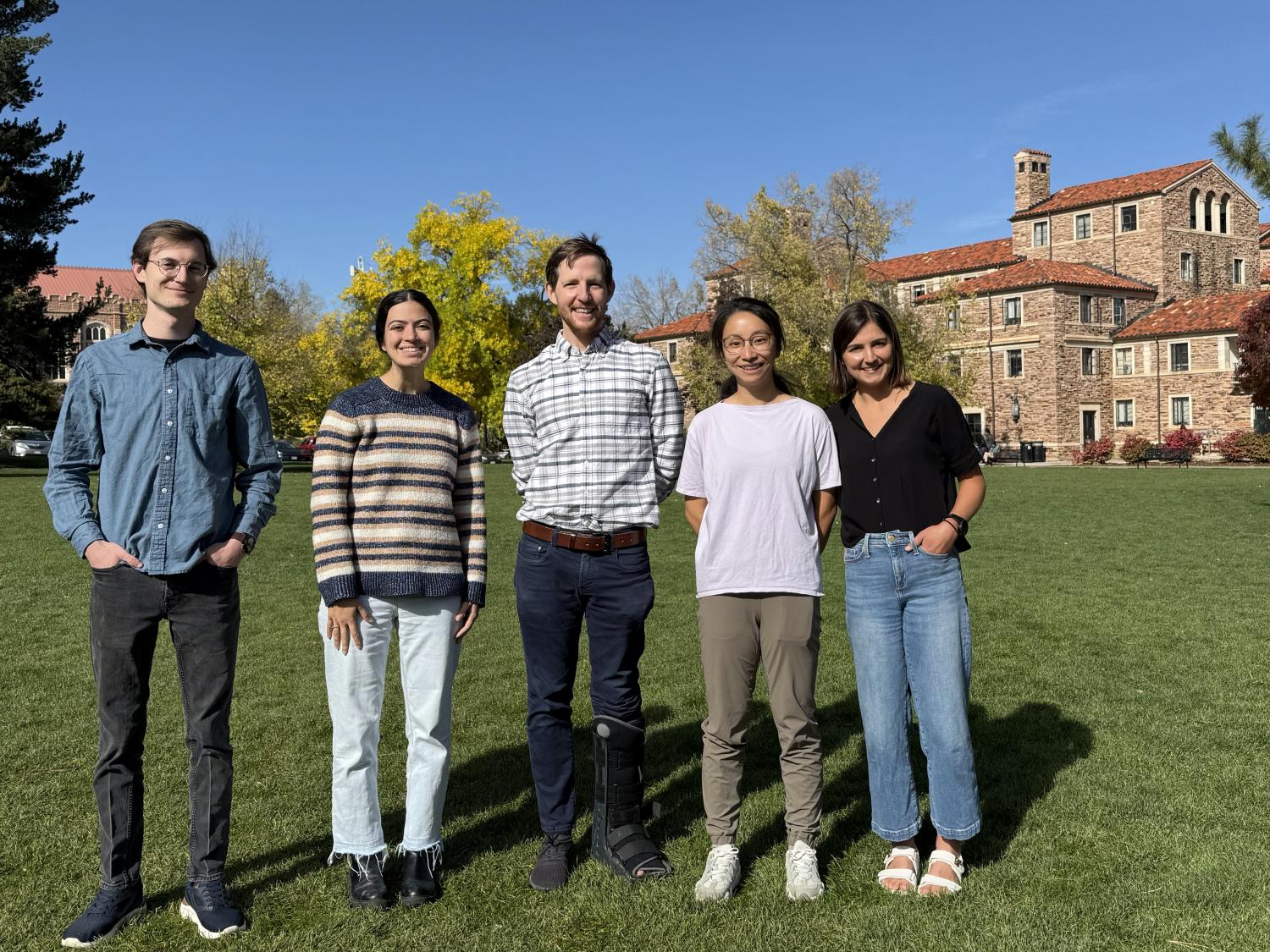Integrative Microbiome Research Laboratory
Ramaley C351C
Website: https://www.colorado.edu/lab/olm/

Olm Lab Photo October 2024
Research Interests
The human microbiome is an entire ecosystem of microscopic organisms that live on our skin and inside our body. These microbes are integrated into our immune, digestive, and nervous systems, and are critical to our overall wellbeing. At the Integrative Microbiome Research Laboratory, we aim to increase our understanding of the human microbiome and its connections to our physiology, and to apply our findings to improve human health.
Our research laboratory uses cutting edge computer-based analysis and experimental techniques to study the microbiome. We specialize in “omics” methods, including metagenomics and metabolomics, which use state-of-the-art instruments to study entire microbial communities simultaneously.
Current research topics include:
- From where do we get our microbiome? How do our microbes spread from person to person?
- How does the infant gut microbiome influence the development of allergies and auto-immune disease?
- How does our intestinal immune system control our gut microbiome? How do failures in this control lead to diseases like inflammatory bowel disease?
Personnel
The Integrative Microbiome Research Laboratory is run by Matthew R Olm, Ph.D.
Meet our lab members at this link.
Opportunities for to Join the Lab
For up-to-date information on our labs current openings, see our lab's Join Us page.
Recent Publications
For recent publications visit our website.

